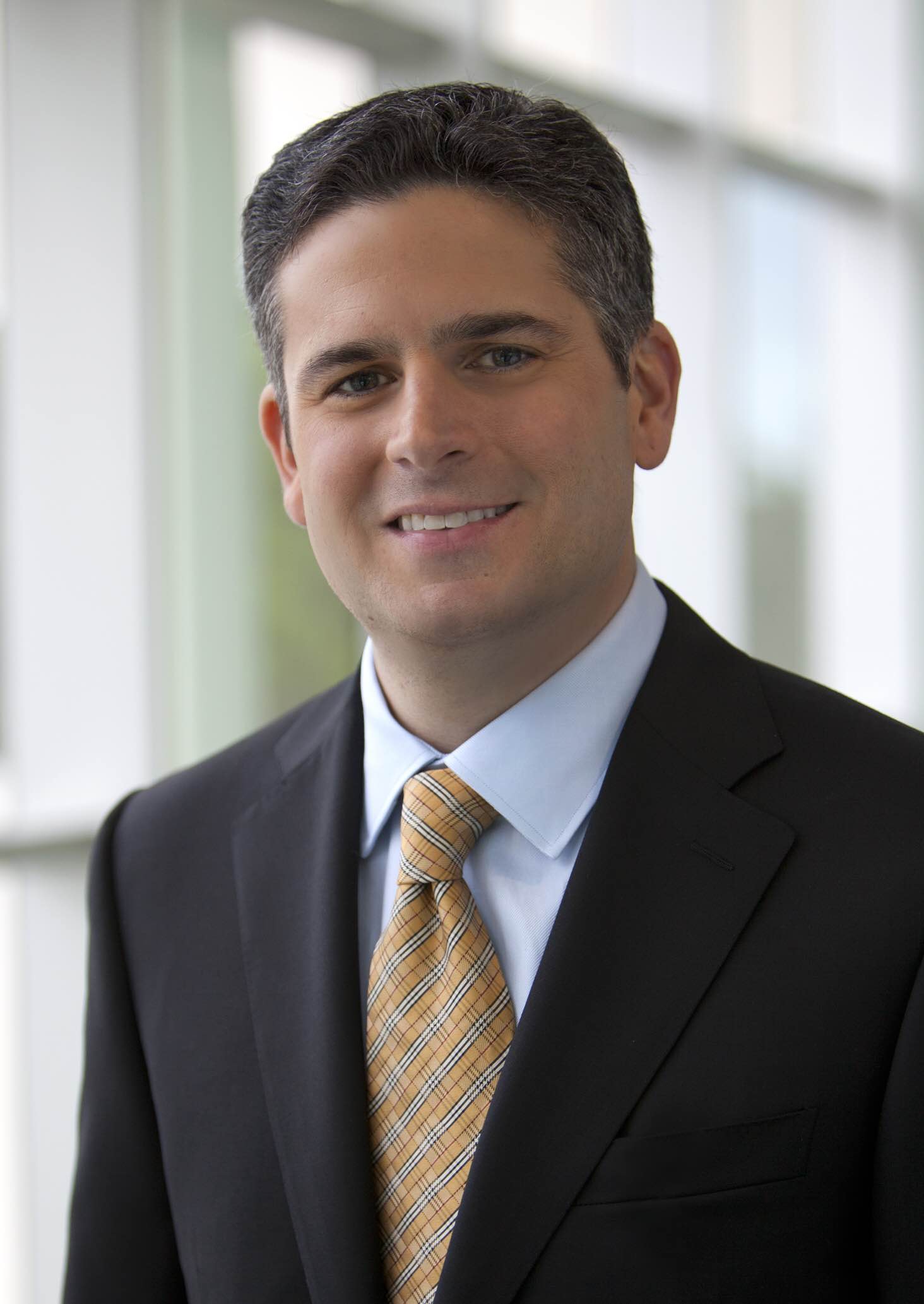Nine spine surgeons discuss the most important qualities that spine patients are looking for in their physicians.
Ask Spine Surgeons is a weekly series of questions posed to spine surgeons around the country about clinical, business and policy issues affecting spine care. We invite all spine surgeon and specialist responses. Next week's question: How will the republican sweep of the House and Senate affect the spine industry?
Please send responses to Anuja Vaidya at avaidya@beckershealthcare.com by Wednesday, Dec. 24, at 5 p.m. CST.
Question: What qualities do you think patients are looking for in their physicians?

Michael A. Gleiber, MD, CEO of Michael A. Gleiber, MD, PA, Boca Raton & Jupiter Fla.: Trust is very important. It may sound cliché; but I believe having a patient's trust is critically important and bleeds into every other aspect of their care. They need to know "you've got their back," before and after surgical intervention. The healthcare business sector has become somewhat dehumanized and to a degree — automated. The onus is placed squarely on the physicians' backs to change this atmosphere in the clinic. Educating patients about treatment options and spending necessary time to foster the doctor-patient relationship is vital. Empowering patients with the knowledge to make decisions and trust the treatment protocols can only be earned in this manner.
Another important factor is education and reputation. Generally, patients are interested in board certification, residency training, fellowship and medical school education. Since they cannot watch their surgeon in the operating room, having an excellent background is a validation to the qualities their physicians posses. Patients, rightfully so, are keenly interested in clinical and surgical outcomes. Friends, referring physicians, hospital staff, online reviews, etc., will certainly have an impact as well. Not being board-certified may signal a red flag for potential patients.
Finally, there is office staff and communication. This starts before the patient enters the office. Having a talented front staff team communicating with patients in a courteous and professional manner will foster trust in the doctor-patient relationship. Patients generally are already anxious when seeing a spine surgeon; having a staff that positively assists in mitigating this anxiety can go a long way. A staff that returns calls promptly and pro-actively contacts patients when studies are completed sets the tone for a competently run office.
 Brian R. Gantwerker, MD, The Craniospinal Center of Los Angeles: I think there are three C's. First is competence. A lot of patients are educated enough to know their surgical options. They want someone with experience and the tools to fix their problem.
Brian R. Gantwerker, MD, The Craniospinal Center of Los Angeles: I think there are three C's. First is competence. A lot of patients are educated enough to know their surgical options. They want someone with experience and the tools to fix their problem.
Second is confidence. It is a thin line from being confident to downright obnoxious. What works for me, and keeps me in check, is just picturing this person as a good friend, relative or as you being the only person that can help them. When that becomes clear, I realize just how much this person trusts me and this helps engender modesty.
Lastly is compassion. You have to let the patient know you care how they do, and that their outcome is just as critical to you as it is to them.

Richard Wohns, MD, Founder & President, NeoSpine, Puyallup, Wash.: Historically, to find a good physician, patients would seek out people with good recommendations from primary care providers, family and friends. Now things are more or less the same but we also have the internet. People are doing a lot of research and there is much more information available. Doctor shopping is more comprehensive and experience level, personality, accessibility and reputation for good results all count.
Phillip G. Benton, MD, JD, Faculty, Atlanta Medical Center: The most important quality in a physician, and what patients most hope for, is honesty.
 Kern Singh, MD, Co-Director, Minimally Invasive Spine Institute, Rush University Medical Center, Chicago: Never has it been more true than now that the three A's of being a doctor are so relevant to being a spine physician. Availability — patients appreciate being able to contact their doctor at any time. Affability — patients need to be able to connect with their physician particularly as the healthcare world is becoming more cold and sterile. And lastly ability — good surgical outcomes with patients is always noticed and reported to fellow patients, primary care physicians and via social media.
Kern Singh, MD, Co-Director, Minimally Invasive Spine Institute, Rush University Medical Center, Chicago: Never has it been more true than now that the three A's of being a doctor are so relevant to being a spine physician. Availability — patients appreciate being able to contact their doctor at any time. Affability — patients need to be able to connect with their physician particularly as the healthcare world is becoming more cold and sterile. And lastly ability — good surgical outcomes with patients is always noticed and reported to fellow patients, primary care physicians and via social media.

Gowriharan "Ty" Thaiyananthan, Founder of BASIC, Newport Beach, Calif.: The qualities that patients look for in their physicians and deserve are clinical and surgical competence; excellence and experience; the ability to be straightforward about a medical condition in a compassionate manner; and trust.
 Plas James, MD, Atlanta Spine Institute: I think most patients really want honesty; honesty about their condition and all of their treatment options. Patients also need to be able to visualize their problems. They need a physician that is able to give them a clear understanding of their options so that they can leave the office with a clear plan of action.
Plas James, MD, Atlanta Spine Institute: I think most patients really want honesty; honesty about their condition and all of their treatment options. Patients also need to be able to visualize their problems. They need a physician that is able to give them a clear understanding of their options so that they can leave the office with a clear plan of action.
Scott Hodges, DO, Center for Sports Medicine and Orthopaedics, Chattanooga, Tenn.: The  qualities I think patients are looking for include physicians who are willing to take the time to listen to their complaints and issues, willing to touch the patient and do a thorough exam, and then give a complete description of the diagnosis and treatment options available. Shared decision-making is a very important part of taking care of spine patients.
qualities I think patients are looking for include physicians who are willing to take the time to listen to their complaints and issues, willing to touch the patient and do a thorough exam, and then give a complete description of the diagnosis and treatment options available. Shared decision-making is a very important part of taking care of spine patients.
Patients also want physicians who are professional. They should dress accordingly, speak with authority, but politely, and never voice stress or anger toward the patient. Compassion is still a very important part of being a competent physician. Spine surgeons should develop the ability to explain, without confusion, the patient's diagnosis and treatment options.
 Gregory Montalbano, MD, Clinical Assistant Professor, New York University School of Medicine, Faculty Member NYU Hospital for Joint Disease: I think patients are looking for a doctor that will treat them competently and empathically. I often get the question from my patients when it comes to choosing treatment: "What would you choose for yourself?" That's a request by the patient for empathy. A request to put yourself in their role and choose for them as you would choose for yourself. I think that if a surgeon offers you, and provides to you, exactly what he would choose and have provided for himself, including the same facilities and technique and technology, etc., that's the best that you can hope for as a patient.
Gregory Montalbano, MD, Clinical Assistant Professor, New York University School of Medicine, Faculty Member NYU Hospital for Joint Disease: I think patients are looking for a doctor that will treat them competently and empathically. I often get the question from my patients when it comes to choosing treatment: "What would you choose for yourself?" That's a request by the patient for empathy. A request to put yourself in their role and choose for them as you would choose for yourself. I think that if a surgeon offers you, and provides to you, exactly what he would choose and have provided for himself, including the same facilities and technique and technology, etc., that's the best that you can hope for as a patient.
More articles on spine:
Spine surgery for 'Generation Me': Will customization lead to better outcomes?
4 spine, neurosurgery practice expansions
Dr. Richard Francis develops patient-to-patient ambassador program


